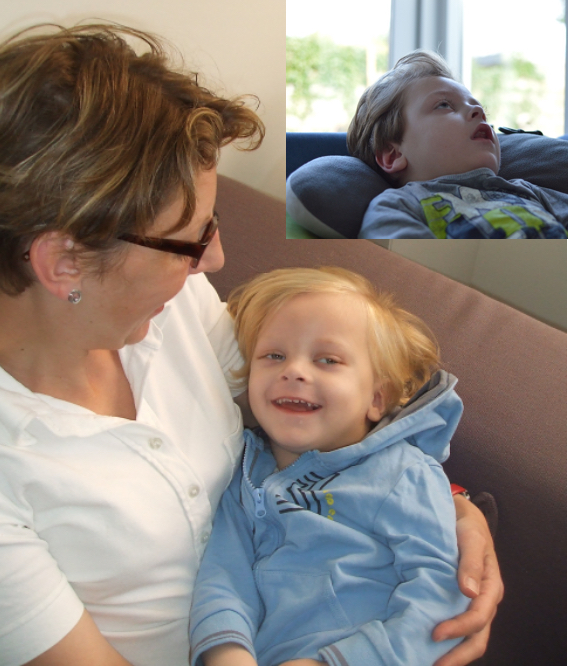
Marjolein Koot, mother of Kasper*
Teaching since : 2015
At: HBO Nursing (minors and electives), HBO pedagogy, advanced training in Pediatric Nursing, Advanced Nursing Training in Palliative Care
"During the lessons I share my knowledge and experience so that (future) healthcare professionals are well equipped for this important care. After all, all seriously ill children are entitled to the very best care and products. There is a lot to tell about the care for Kasper and the insights I have gained in this area, then it is sometimes difficult when there is only limited lesson time. It is nice that there is usually a lot of dynamics during the lessons. The students listen with great attention and interest, but also dare to ask questions about difficult and complex subjects. Or we discuss them with each other. It makes me grateful that students give back that they learn so much from these lessons and take them with them for their future professional practice. And that they realize that they can mean so much to seriously ill children, both intramurally and extramurally and families, as can be read in this response, of a joint guest lecture where both Kasper's long palliative trajectory and the Maxine's short terminal trajectory is linked to knowledge and theory of pediatric palliative care."
"Hi dear mothers of Kasper and Maxine. Thank you very much for the impressive presentation yesterday. It provides valuable insights, both professionally and as a person. The two often go together, otherwise I don't think you work in healthcare. You had a nice presentation and a good way of telling. The message came out well because of that. You are powerful women!" - Student
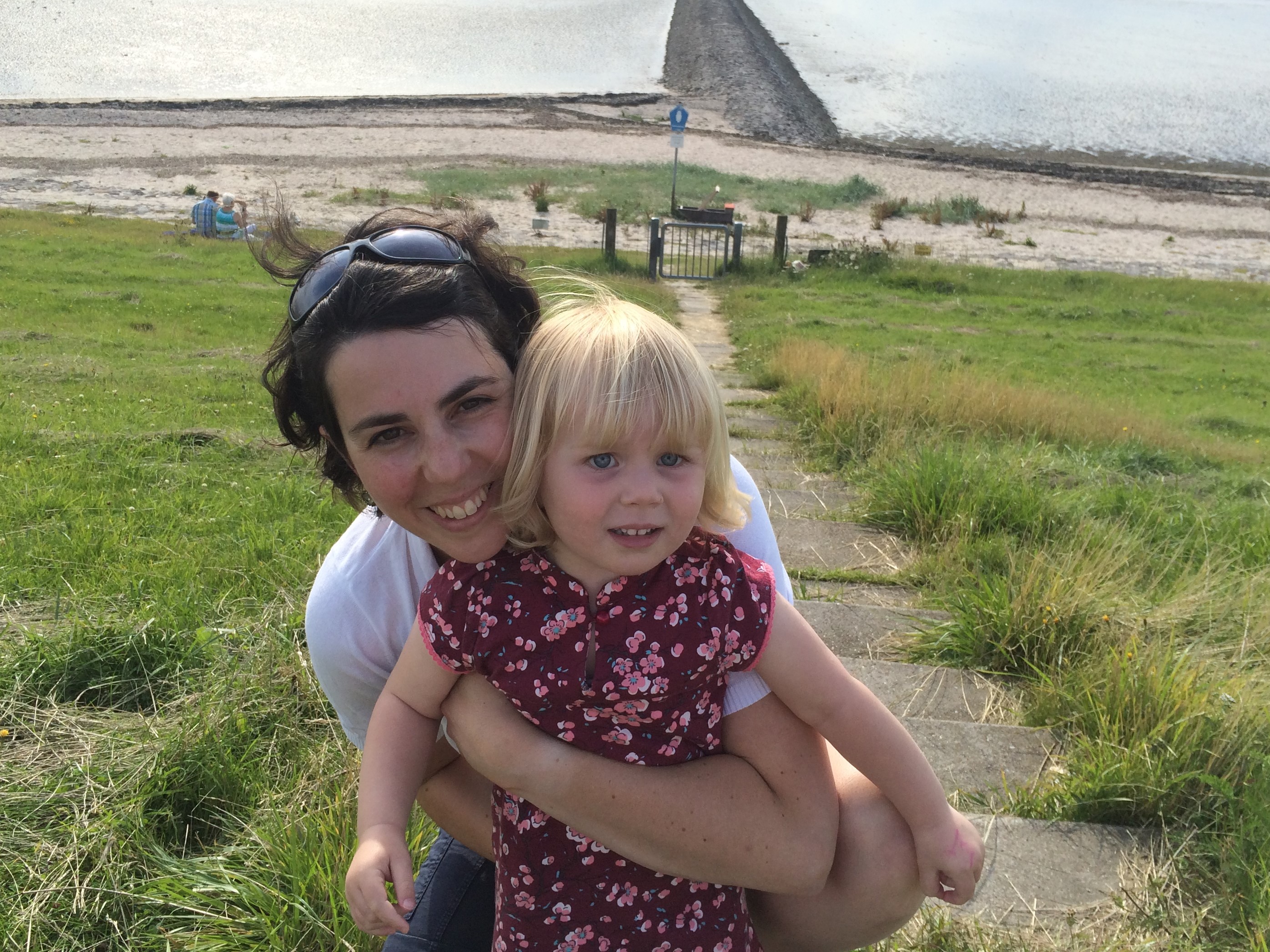 Marjolein Broeren, mother of Maxine*
Marjolein Broeren, mother of Maxine*
Teaching since : 2018
At: HBO-Nursing (minor Vulnerable Child, minor High Care Mother & Child), advanced training Pediatric Nursing and training Kaderartsen Palliative Care
"Maxine has had a good palliative care process. I wish every seriously ill child that. I think it's important that healthcare professionals realize that they can make a difference in pediatric palliative care. By sharing my most valuable life experience, I want to show them on how they can be meaningful to children and their families. Pediatric palliative care requires a different perspective on a patient. I like to offer them that different perspective and I think it is important that they know that they do not have to do this care alone. It is valuable that Maxine still has meaning in this way. I am proud to share her story, although the content remains intense. Some students therefore do not feel the space to respond or ask questions. I try to create as much space as possible, but that is not always possible I liked the reaction of a student that child palliative care had been given a face by Maxine's story and therefore no longer a "far from her bed show" used to be."
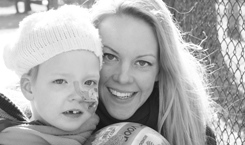
Merlijn Beerepoot, mother of Benthe*
Teaching since: 2019
At: HBO Nursing (minor Vulnerable Child, minor High Care Mother & Child, minor Palliative Care in oncology)
"I think it is important that students understand how a child palliative care process is experienced from a parent's perspective. That is why I tell during the lessons how I experienced being a parent of a child who needed this form of care. Due to more life experience, it is easier for older students sometimes easier to put themselves in such a situation than for younger students.On the other hand, the open mind of the young people is surprising. They often have a fresh view of the world. It's nice to see how eager they all are. Their reactions stay with me. Students who come to me after class to thank me, who sit in lectures for a moment in silence to let everything that has passed sink in. Or a heartwarming e-mail when they return home."
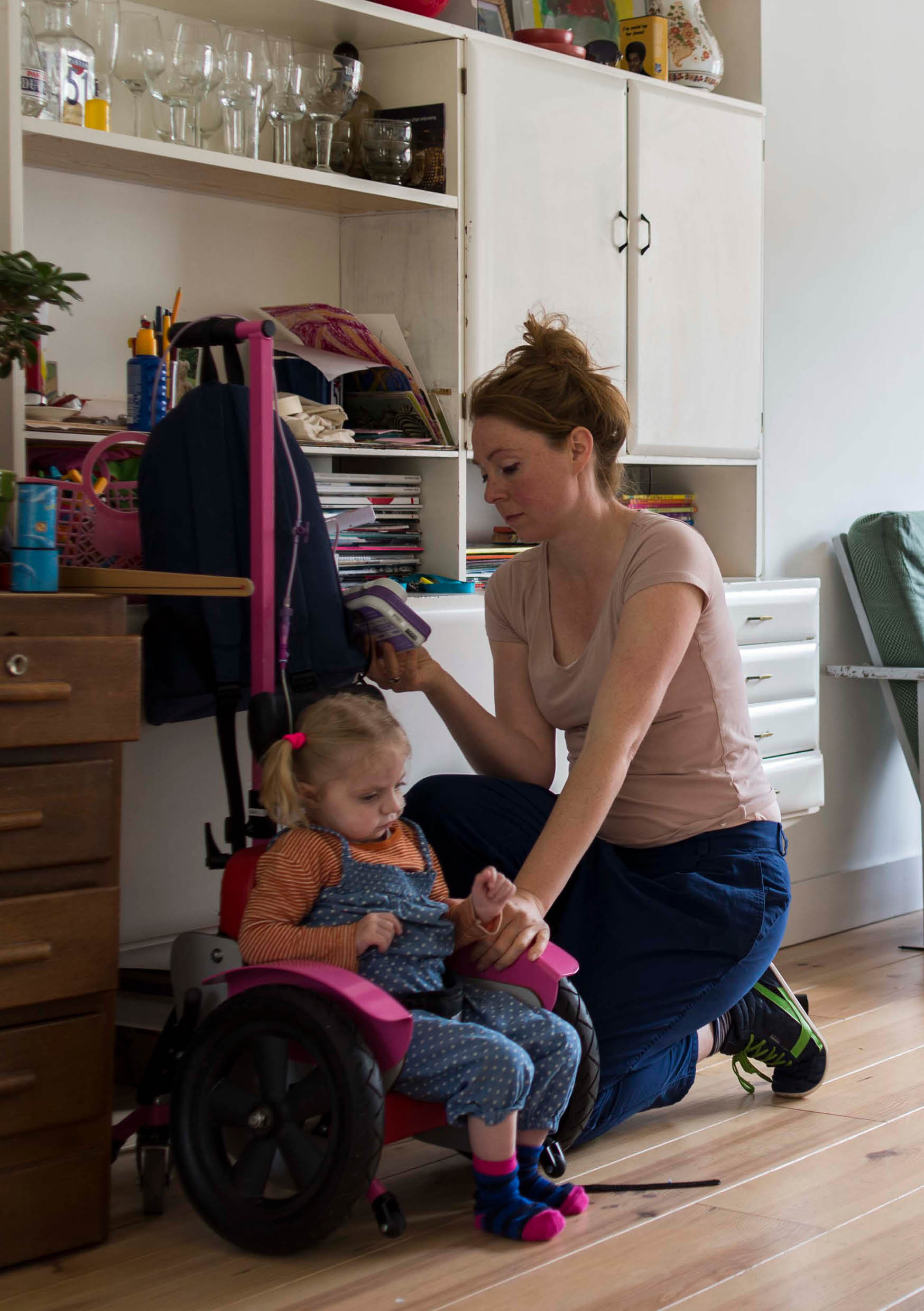 Neel Staats, mother of Bel*
Neel Staats, mother of Bel*
Teaching since: 2019
At: HBO-Nursing and further training Pediatric Nursing
"It is always a bit difficult to tell my story in front of the class. I see that as a good thing, because that is precisely why I can tell a nuanced story about pediatric palliative care. What I want to say is that, in the time that Bel was, have benefited enormously from the care professionals who have really shown commitment. In which the person behind him or her was also visible. I think it is very important that pediatric nurses in training know this and are aware of the enormous significance they can have for families and sick children. They have chosen an incredibly valuable profession, but they must not forget how vulnerable families are with children in palliative care. When I managed to convey that, I have the feeling that the suffering of my daughter and our family is nevertheless leads to something positive somewhere. That it was not in vain."
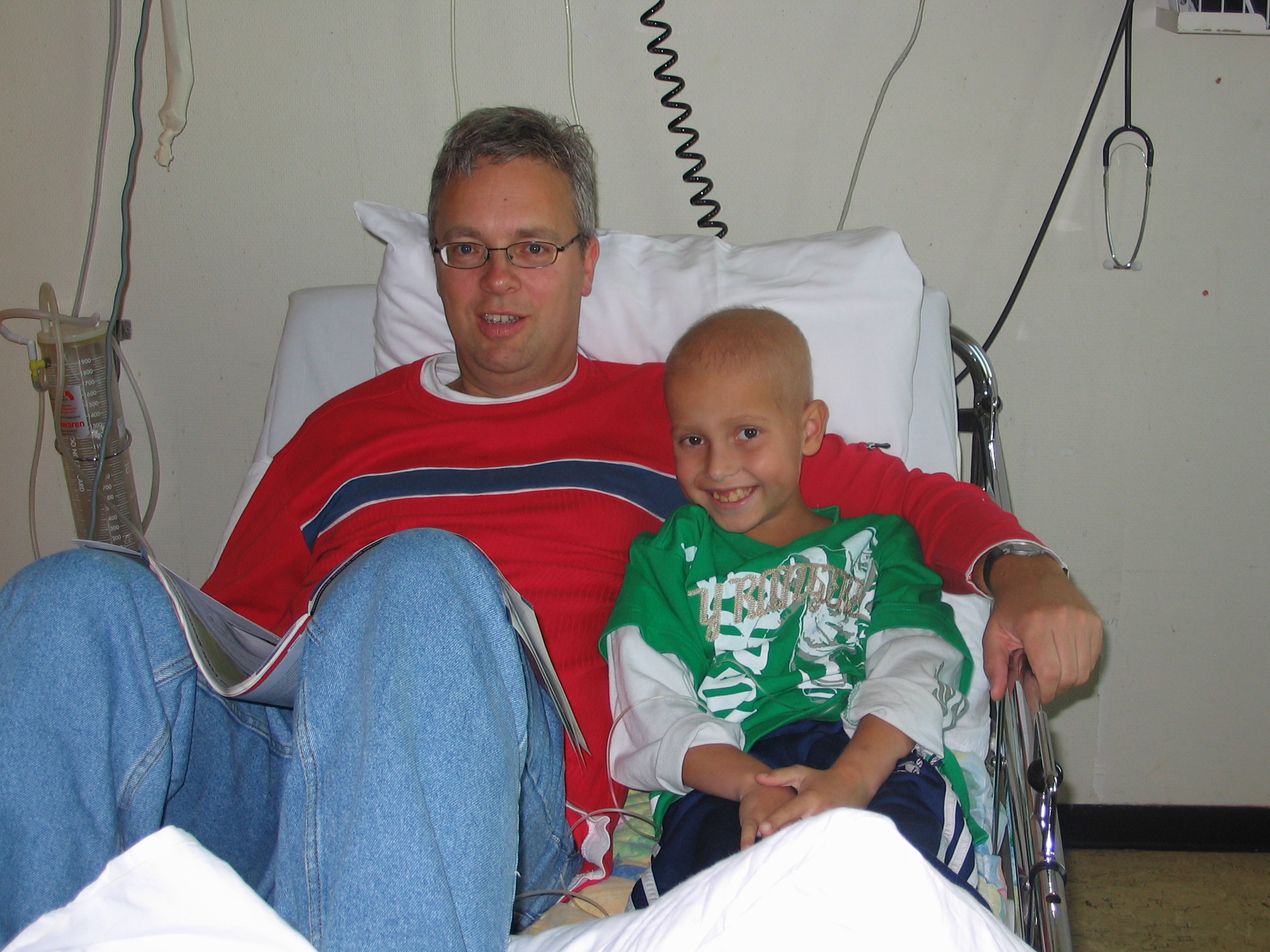 Niek and Liesbeth Krouwel, parents of Mathijs*
Niek and Liesbeth Krouwel, parents of Mathijs*
Teaching since: 2014
With: Basic training in pediatric palliative care, for healthcare professionals
"Our motivation is that after this course, healthcare professionals will be better able to put themselves in the shoes of the child who needs care, and the parents on the other side of the bed. We hear back that this is valuable, because our story provides different information than people might expect from learns the theory books or has experienced it in practice. For example, a student was indignant that we as parents were careful with criticism towards healthcare professionals. We wanted to avoid getting into a discussion with them, because then we might get less good later or would receive care. According to the student, that was unthinkable. Opinions also differ about our choice not to tell Mathijs for a long time that he would die. We think that this is why he was making distant plans for the future until more than a month before his death. Other parents and healthcare professionals are afraid that children will lose trust in their parents if you don't always tell them 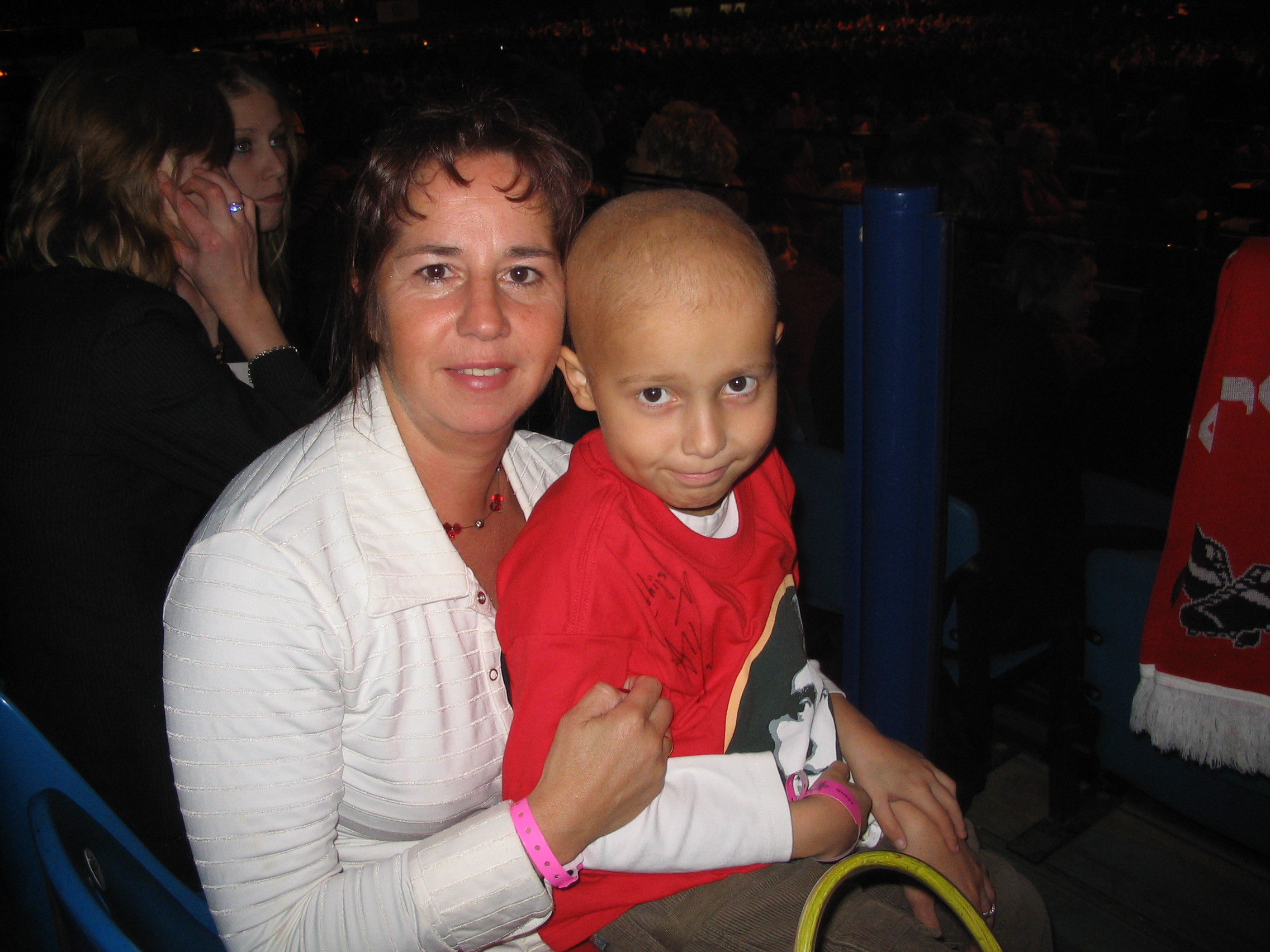 tells the truth. Our stories often elicit questions and reactions from the group. We find it difficult when there is little interaction. That is why digital teaching in corona time was a challenge. Despite various small assignments, we cannot sense through the screen how our story is perceived by the students. Sometimes it becomes one-way traffic. Fortunately, we can read back through the evaluation forms that our story is well appreciated. We do notice that we are always tired after such a lesson. Because we tell how we experienced it, we go all the way back to the time when Mathijs was ill. After the course we therefore always treat ourselves to something delicious at the confectioner's and in the evening we go to bed early"
tells the truth. Our stories often elicit questions and reactions from the group. We find it difficult when there is little interaction. That is why digital teaching in corona time was a challenge. Despite various small assignments, we cannot sense through the screen how our story is perceived by the students. Sometimes it becomes one-way traffic. Fortunately, we can read back through the evaluation forms that our story is well appreciated. We do notice that we are always tired after such a lesson. Because we tell how we experienced it, we go all the way back to the time when Mathijs was ill. After the course we therefore always treat ourselves to something delicious at the confectioner's and in the evening we go to bed early"
Interested in a lesson?
More and more courses are including an introductory lesson on pediatric palliative care in the curriculum. Interested in a guest lesson? Please contact Marjolein Koot ( m.koot@kinderpalliatief.nl, 06 49 90 05 79 or Mara van Stiphout ( m.vanstiphout@kinderpalliatief.nl, 06 47 68 80 00 ) for a no-obligation introduction.